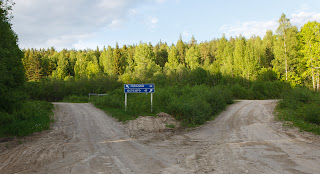In John's gospel Christ states that "I am the way, the truth and the life" and yet we often deny this as Christians in our lives. We often have very little compunction about telling things to people that will benefit ourselves and our friends rather than the truth. This is one of the most difficult things for us to undertake as our whole society is based on the telling of lies. If you do not believe me than listen to this story of an ethics class where telling lies was discussed. A student told the lecturer that she never told lies. The lecturer asked her a couple of questions: do you ever wear shoes that have increased your height in any way? the student replied , "Of course, I wear heels to go out to dinner" The lecturer then asked "Do you ever wear any form of make up?" The answer given was "yes most of the time". The lecturer than asked "how can you say you do not lie? You have said you lie about your height when you go out and each day you lie about who you are when you disguise your features with makeup". These are minor social lies that we undertake each and every day in some form or another (gentlemen we are the same; just think aftershave, cologne, hair gel, shoes with a higher heel, etc). It becomes increasingly so when we begin to talk about advertising and politics in all of its forms. Our society is built on lies often hidden, often socially accepted and often blindly ignored even when we know the truth.
Christ in Marks's gospel suggests various body parts to be cut out and put out if they commit sin (Mk 9:43-47) perhaps indicating how we can tell an untruth through our bodies but most importantly not to allow ourselves to become tasteless without the truth salting our body (Mk. 9:49-50). In James' epistle the author is clear about how we must habituate our speech pattern around the truth (James 5:12). In answering questions and delivering our opinions we are often guilty of waffling our way towards the endpoint rather than stating our feelings or what we wish done. This again is something that society has suggested is the better way as then we will not upset or disrupt relationship. Yet, if we do not truth tell we will eventually cause the same disruption of relationship. Yes, we needs must take care in how we speak the truth but this is about wisdom and understanding rather than not stating the truth. Truth telling is not always about words and how we inform each other. Truth telling goes beyond this to how we actually live our lives to the fullest. In the book of Esther there is a clear understanding of what the cost of truth is not only for those telling it but those who have perpetuated a lie (Esther 7-8).
Just think about our own lives for a moment. The majority of us for whatever reason have a reluctance to share our lives with others, even with our family and friends. Even when we have things like RUOK day and other such ventures the understanding of privacy is so in built into our lives that we are reluctant to divulge and open our hearts. This is about truth telling of our hearts and minds and opening up to the presence of God. In James the writer goes on to speak about praising God if we are cheerful and praying if we are down, informing others of illness, etc (James 5:13-). This is about honesty in our own understanding of ourselves. This is telling the truth of our lives to others. It is not about divulging the secrets of secrets. It is about being honest about ourselves. This takes many of us a long time to understand and often we never come to this understanding of ourselves. We prevaricate and do not let others know our true feelings and were we are at in terms of our own health, spiritual, mental or physical. This has gradually become part of our lives over time and in some sense enshrined in the law of the land regarding privacy. We are reluctant to invite others into our hearts and life simply because we can shut them all out. In doing so we lessen our ties to each other and to the formation of community. It does not matter that we may dislike someone God asks us to love them irrespective of who or what they portray or are.
In order to be honest and pick up the cross to follow Christ we must pick up the burden of truth telling in our lives. It is no use for us to say yes we are OK when we are not for we then do not receive the support that the community can give us in prayer and comfort. As a result of this loss of respect and truth telling we have lost our ability to be empathetic. We no longer have the understanding of another's pain and circumstances since we have privatised our own pain and despair. Only when we can share in truth can we really begin to understand and empathise with others who are equally burdened and in pain.





